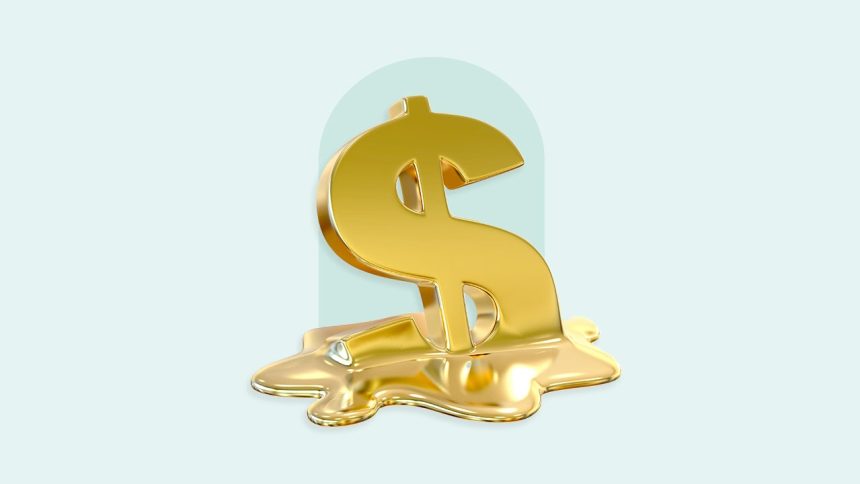Image by Getty Images; Illustration by Bankrate
To pay or not to pay?
That’s the question in my soul.
Do I Venmo Uncle Sam,
And put forgiveness hopes on hold?
This lyric popped into my head as I pondered the meaning of debt management in the era of student loan forgiveness. The more I research this topic, speak to experts and pore over data, the more I realize: Federal student loans are fundamentally different from any other type of debt — in fact, they may share more in common with the predatory mortgage products of the early 2000s than you might guess.
- Approval isn’t based on your credit scores. Almost every other type of credit relies on your credit score to determine your eligibility and set your rate.
- The lower your income, the more you’re typically eligible to borrow. With other types of loans, a low income often means that you don’t qualify for a loan (or can only borrow a small amount).
- Repayment is deferred until after graduation. Most loans require repayment to begin when you receive your loan funds.
- Your monthly payment amount may depend on your post-graduation income. Typically, you agree to a monthly payment amount when you sign a loan contract, and it’s based on the repayment term.
So what, Denny? Why does all that matter? I’m glad you asked.
Federal student loans are basically no-income, no-credit loans. My last run-in with that type of credit was during my days as a mortgage originator. Back then, loans that didn’t require income verification were considered predatory, and one of the proposed solutions was “principal forgiveness.” Sound familiar?
Question of the month: Is student loan forgiveness a sign that the loans are predatory?
That’s a loaded question, so let me provide some context. In the aftermath of the housing meltdown, one loan product in particular caught the ire of regulators: the no-income, no-asset loan. Down payments weren’t required, and income was stated, not verified.
A bad credit score wasn’t an obstacle — lenders just charged higher rates to compensate them for the increased risk of default. And since income wasn’t even considered, the higher payment didn’t hinder your approval chances. The lax lending standards made it easy for consumers to buy overpriced homes, until the whole thing came crashing down.
Similarly, having a bad credit score (or no score at all) isn’t an obstacle to federal student loan eligibility. In fact, since federal loans are needs-based, a low income can actually help you qualify to borrow more. When reviewing your application, the lender doesn’t consider your ability to repay the debt. The lenient lending standards make it easy to pay for skyrocketing tuition costs, and now that the payment pause is over, the reality of making payments is crashing down on millions of student loan borrowers.
We need to have an “ability to repay” conversation about student loans
As the smoke-and-mirrors mortgage products were replaced by mortgage reform laws, a significant byproduct was a renewed emphasis on verifying a borrower’s ability to repay the loan. Given the similarities between no-doc mortgages and some student loans, perhaps it’s past time to talk to student borrowers about their repayment plans.
Since student loan repayment often doesn’t begin for four years, it’s all too easy to kick the can down the road and say, “I’ll figure out how to repay it when I’m done with college.” I challenge any prospective student loan borrowers to make a plan now. Ask yourself the following questions before committing to a decade or more in debt:
- How much are you realistically going to earn when you graduate? Don’t be tempted to count on the top end of your future career’s pay band — consider the average earnings. Bankrate surveys consistently show that graduates overestimate their earnings potential. Being realistic could help mitigate the shock of low earnings for graduates entering the workforce.
- What will your fully amortizing payment be? Use a student loan calculator to understand your future repayment obligations. Income-based repayment could be a hardship option if the job hunt doesn’t go well, but don’t rely on it as your Plan A.
- Focus on budgeting for repayment rather than banking on federal loan protections. One of the arguments against private student loans is that they don’t offer the protections of federal student loans. As a former loan officer, I’m left wondering: Why are we so focused on protecting students from these loans? Instead, focus on creating a realistic repayment plan, perhaps one that includes making payments while you’re still in school.
- Get prequalified for private student loans to gauge your ability to repay. The prevailing advice is to apply for federal student aid before considering private loan options, especially since gift aid (like scholarships and grants) also comes via a federal aid award. But before jumping into federal loans, explore private loan options to determine the most affordable option and better understand your ability to repay the debt. (There are even private loan options if you don’t have a cosigner.)
- Schedule yearly check-ins with a financial advisor at your school. Not only can they help you plan for your career or discuss changing financial goals, but this regular touchpoint can serve as a reminder of the countdown to your first loan payment.
The final word from Denny, your BFF (best financial friend)
According to the U.S. Department of Education, more than 5 million borrowers were in student loan default as of April 2025, with another 5 million borrowers teetering on the edge of default. How did we get here?
The original intent behind student loan forgiveness was to reward borrowers who take a career in public service and to provide relief for those experiencing financial hardship or victims of fraudulent college schemes. Unfortunately, it seems as though too many students borrow money for college, assuming they’ll be able to repay the debt without ever crunching the numbers.
Banking on loan forgiveness without a solid plan to repay is neither financially healthy nor responsible. Before you borrow, be sure to understand your repayment obligations, consider your realistic future earnings and have a post-graduation plan. Otherwise, your first foray into the world of credit and debt as an adult could go awry.
Read the full article here
















